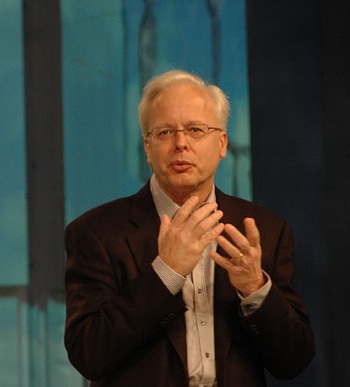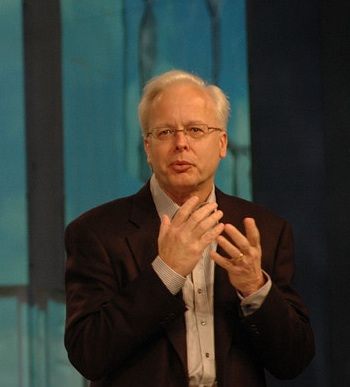
Just as Microsoft chief software architect Ray Ozzie is preparing to step down, he’s leaving the software giant with a farewell memo outlining where the “Post-PC” world is headed. Titled “Dawn of a New Day,” it comes across as a dire warning for Microsoft to move faster away from its dependence on the PC towards “continuous services” in the cloud available across a wide array of “connected devices.”
Ozzie has hit upon some of these themes before, starting with a big-think memo five years ago called “The Internet Services Disruption.” Certainly his original concept of Microsoft Mesh was very much in this vein of syncing data across devices and the cloud. But Mesh has been years in the making, and is only now beginning to see the light of day in limited ways.
It is almost as if Ozzie is saying Microsoft didn’t completely get the message. After starting off this latest memo with some dutiful praise, he gets to the meat of his concerns:
Yet, for all our great progress, some of the opportunities I laid out in my memo five years ago remain elusive and are yet to be realized.
Certain of our competitors’ products and their rapid advancement & refinement of new usage scenarios have been quite noteworthy. Our early and clear vision notwithstanding, their execution has surpassed our own in mobile experiences, in the seamless fusion of hardware & software & services, and in social networking & myriad new forms of internet-centric social interaction.
What he describes sounds a lot like Google, which is pushing to remove the distinction between native apps and Web apps with the Chrome OS and Google Apps.
Google is also probably the furthest ahead in terms of syncing connected devices such as Android phones and Google TVs to the cloud. A general design principle Google follows is if your data is in the cloud, it should be available on all your devices. This is already true for Gmail, Google Docs, Google Calendar, and Picasa. It’s also increasingly true for other apps.
The Send-To-Android feature, for instance, makes it easy to send links to phones which will then launch apps on those phones. Google extended that functionality to its Chrome browser. Android also updates apps over the air seamlessly.
Obviously, Google isn’t the only threat here. It certainly isn’t at the forefront of social networking (that would be Facebook). And perhaps that is where Microsoft can still find its footing, by creating a computing architecture that brings together devices, the cloud and social networks. Ozzie hints at this:
Tomorrow’s experiences will be inherently transmedia & trans-device. They’ll be centered on your own social & organizational networks. For both individuals and businesses, new consumption & interaction models will change the game. It’s inevitable.
Of course, Google also realizes how important social is going to become. But when you think about who is winning in social, neither company comes to mind.
Photo credit: Flickr/Dan Farber
